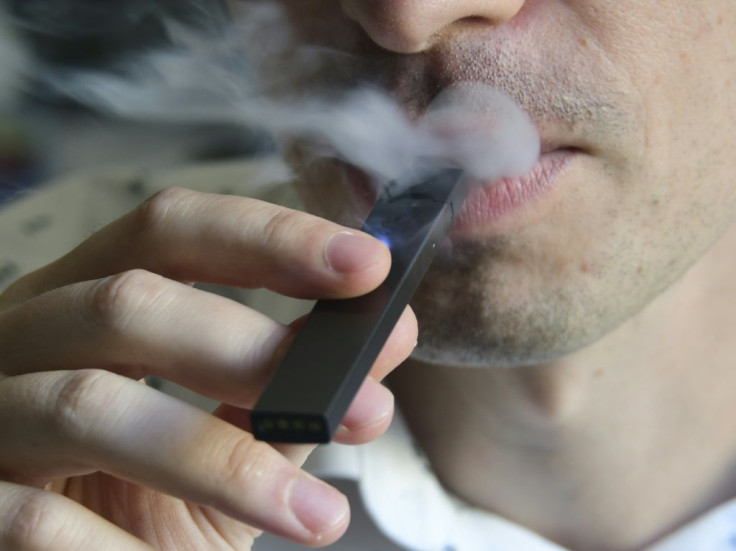A Tax On Vaping? Government May Treat Vaping Like Tobacco

With the number of lung injuries and deaths related to vaping still growing, the U.S. House Ways and Means Committee Wednesday approved a measure that would tax e-cigarettes at the same level as tobacco products.
The measure, approved 24-15 by committee members, would place the equivalent of the $1.01 excise tax on a pack of cigarettes on tobacco alternatives.
The National Youth Tobacco Survey found e-cigarette use among high school students jumped from 11.7% in 2017 to 20% last year.
“Increasing the cost of vaping will have a direct correlation to decreasing the usage of vaping products,” Rep. Tom Suozzi, D-N.Y., said in a statement.
The congressional Joint Committee on Taxation estimated the bill could raise $10 billion in a decade, and the money would be used to offset the cost of healthcare-related tax break proposals. Similar legislation has been introduced in the Senate.
Lawmakers have focused on vaping since the first reports of lung illnesses related to the practice surfaced in late summer.
In its last report, the Center for Disease Control and Prevention said 33 deaths related to vaping have been recorded in 24 states. Some 1,479 lung injury cases in 49 states also have been reported. An update was due Thursday.
The bipartisan House bill was sponsored by Suozzi and Rep. Peter King, R-N.Y. It would tax “any nicotine which has been extracted, concentrated or synthesized” at the same rate as cigarettes. The bill exempts products used as nicotine replacement therapy certified by the Department of Health and Human Services and approved by the Food and Drug Administration.
The CDC has yet to pinpoint what is causing the vaping-related illnesses, but initial findings tie the ailments mainly to products containing THC, the active ingredient in marijuana, especially THC products sold on the street.
Those affected by the vaping-related lung injuries have ranged in age from 13 to 75, with a median age of 23 and 79% younger than 35.
Juul Labs last week announced it would suspend sales of its non-tobacco, flavored products to make its products less attractive to minors.
Numerous retailers, including Walmart and CVS, have said they would stop selling all vaping products.
© Copyright IBTimes 2025. All rights reserved.






















